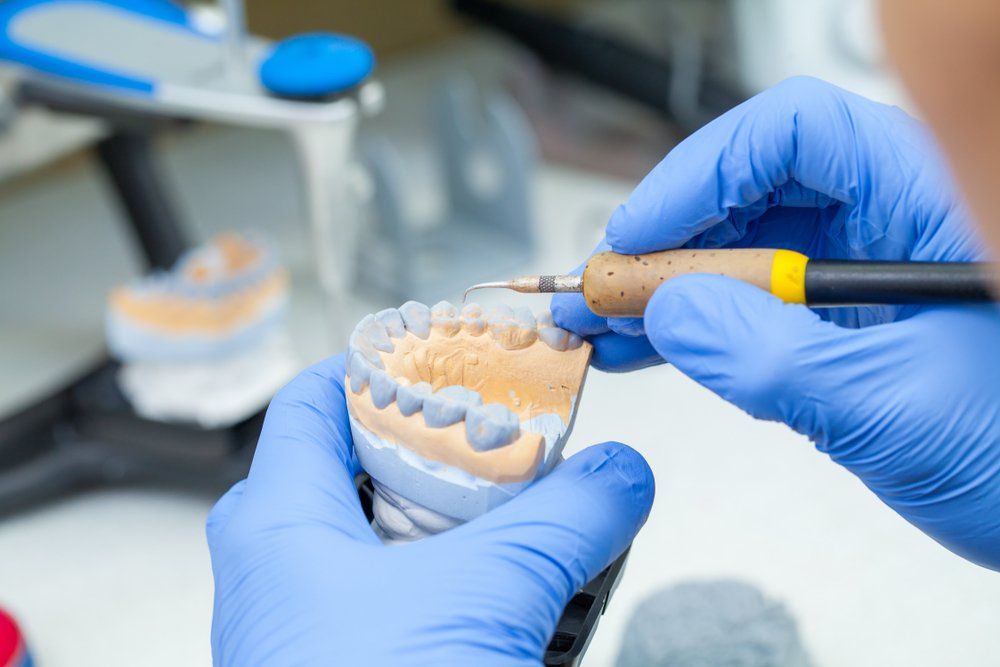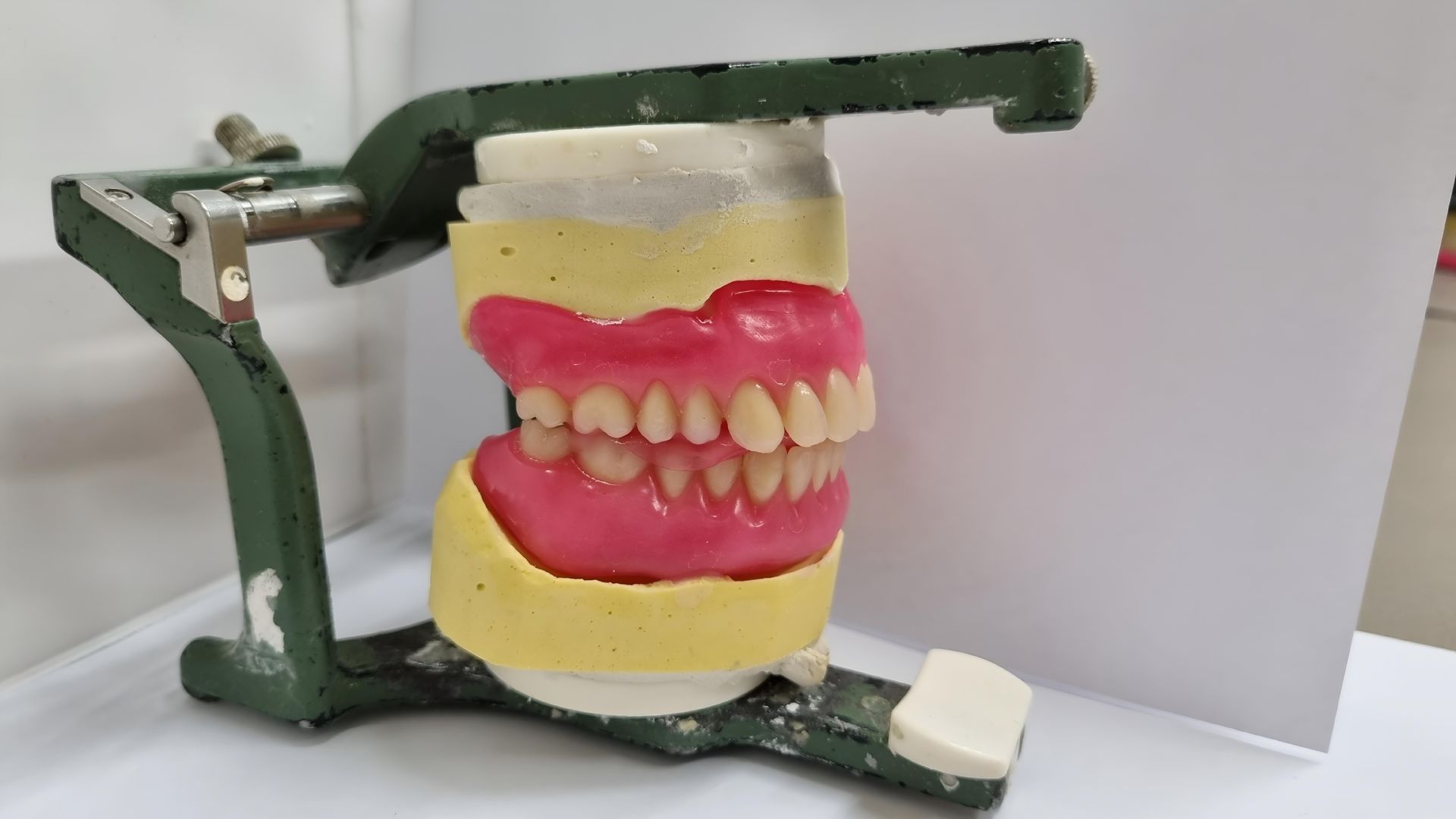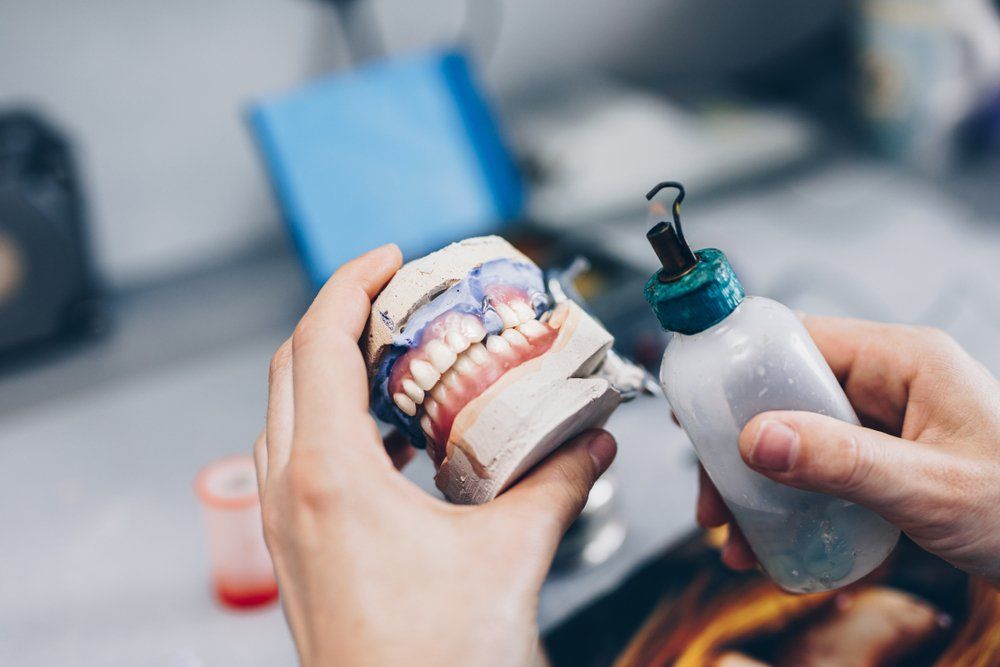From Tooth Loss To Full Dentures: Understanding The Transition Process
Losing most or all natural teeth can be a major adjustment, both physically and emotionally. For many, it marks the start of exploring full dentures as a way to restore the ability to eat, speak and smile with more confidence. The journey from tooth loss to wearing full dentures isn’t something that happens overnight. It involves several steps designed to create dentures that fit comfortably and work well for your needs.
In this blog, we’ll walk you through each stage of the transition, from recognising the need for dentures to adapting to life with them.
Recognising the Signs That Full Dentures May Be Needed
Not everyone moves straight to full dentures, but there are certain signs that may indicate it’s time to consider them. These signs can be physical, functional or aesthetic, and they often develop gradually.
Common indicators include:
- Difficulty chewing most foods due to missing or damaged teeth
- Frequent gum irritation or oral discomfort
- Noticeable changes to facial shape caused by missing teeth
- Multiple failing teeth that can’t be restored
If these challenges are becoming part of daily life, it might be worth exploring whether full dentures could be a suitable option.
Your First Consultation: What to Expect
The first appointment is about understanding your needs and oral health. During this stage, you’ll have the opportunity to discuss your goals, ask questions, and learn more about the process.
A typical first consultation may include:
- Reviewing your oral and dental history
- A visual examination of your gums, remaining teeth (if any), and bite alignment
- Discussing possible timelines, taking into account any extractions or healing periods
- Exploring different types of dentures and materials available
This step provides a foundation for your denture journey and helps you prepare for what’s ahead.
Extractions & Oral Preparation for Dentures
In some cases, remaining teeth may need to be removed before dentures can be fitted. This is often the case when teeth are damaged, decayed or affecting gum health.
Oral preparation may involve:
- Planning extractions over one or more appointments to support comfort
- Addressing any gum inflammation or infection before moving forward
- Discussing temporary options if you need teeth removed but still want a functional smile during healing
This stage is an important part of making space for dentures and creating a healthier foundation for your new set.
Healing Time: Allowing Your Gums to Recover
After extractions, gums and bone need time to recover before impressions for dentures can be taken. Healing time varies depending on the individual and the number of extractions required.
Key points to consider during this phase:
- Soft tissues need to settle so the final dentures fit more accurately
- Healing generally involves gradual changes in gum shape and size
- Temporary dentures may be an option during this period
- Good oral hygiene supports healthy healing and comfort
While it can be tempting to rush this step, taking the time to allow tissues to stabilise helps create a more comfortable long-term fit.
Taking Impressions for a Custom Fit
Once the gums are ready, the next stage is taking impressions. These moulds capture the shape of your gums and bite, forming the blueprint for your dentures.
This stage typically involves:
- Using specialised materials to create a detailed mould of your gums
- Recording bite registration to assess how your upper and lower dentures will align
- Discussing tooth shape and shade preferences for a natural look
- Sending the moulds to a dental laboratory for denture creation
A well-made impression plays a big role in how comfortable and secure your dentures will feel once fitted.
The Try-In Fitting: Checking Comfort & Appearance
Before your final dentures are completed, you’ll usually have a try-in appointment. This is where a wax or preliminary version of your dentures is placed in your mouth to assess fit and appearance.
During the try-in fitting, you can expect to:
- Check how the dentures feel while speaking and closing your mouth
- View the appearance of the denture teeth, including size and colour
- Give feedback about any areas that feel loose or tight
- Request adjustments before the final set is made
This step allows changes to be made before the final dentures are created, helping achieve a look and feel that works for you.
Final Placement & Adjustments
The day you receive your final dentures is a big milestone. However, it’s normal for them to feel a little unfamiliar at first. Your dental provider will place them in your mouth and make small adjustments for comfort and function.
The final placement stage may include:
- Checking bite alignment to prevent uneven pressure
- Making fine adjustments to remove sore spots
- Providing advice on cleaning, storage and maintenance
- Scheduling follow-up visits for further adjustments as needed
Even after final placement, your dentures may need minor refinements as your mouth adjusts
Adapting to Life with Full Dentures
Adjusting to full dentures is a gradual process. Your gums, tongue and jaw muscles need time to adapt, and it’s normal to experience a period of adjustment in how you eat, speak and smile. In the first few weeks, you might notice small changes in how food tastes, how certain words sound, or how your dentures feel in your mouth. These are common and often improve as your mouth becomes more accustomed to the new fit.
Tips for adapting include:
- Starting with soft foods and gradually introducing firmer textures
- Practising speaking slowly and clearly to get used to new movements
- Removing dentures at night to give the gums a rest
- Storing dentures in water or a recommended solution is recommended to maintain shape
By taking things slowly and giving yourself time to adapt, you can make the transition to full dentures a more comfortable and manageable experience.
Ready to Discuss Your Full Dentures Sunshine Coast Options?
At The Denture Care Group Sunshine Coast, we create full dentures tailored to your comfort and preferences. Whether you’re moving from recent tooth loss or have been without teeth for some time, we can guide you through each step of the process, from consultation to final adjustments.
Learn more about our full dentures on the Sunshine Coast. Contact us today to arrange a consultation and take the first step towards restoring your smile.







